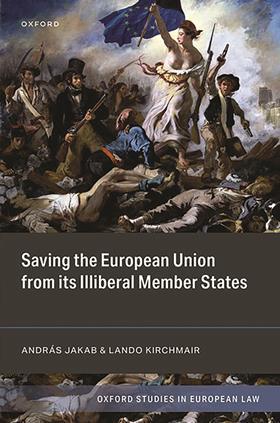Saving the European Union from its Illiberal Member States
András Jakab and Lando Kirchmair
£100, Oxford University Press
★★★★✩
This study examines the alleged impact of illiberal regimes on the European Union as a whole, especially its constitutional framework. It looks particularly at Hungary but also considers Poland, at least before Donald Tusk (pictured) became prime minister for a second time in 2023.

The writers to some extent blame the communist past of Hungary and Poland for the allegedly corrosive impact of their sometimes illiberal regimes on EU institutions. They describe the ‘mutually poisoning’ effect that the EU and illiberal member states have had on each other in degrading the rule of law and democratic values that the EU and member states were meant to espouse.

The authors suggest a number of ways in which the EU and member states can confront the illiberal enemy within, adapting existing or available procedures and tools and without the need to seek new contentious legislative powers. These include transforming the EU Justice Scoreboard into an Actual Rule of Law Index (the so-called ‘epistemological tool’); completing the European Fundamental Rights Union; and applying the so-called ‘Spitzenkandidaten’ selection system, whereby those selected to executive office within EU institutions are more directly linked to the democratically elected European Parliament.
The book is well laid out in seven chapters with logical sub-headings. There are useful introductory and concluding chapters too. It is also well annotated and indexed, with footnotes and a bibliography. A true work of scholarship. Delacroix’s painting of ‘Liberty Leading the People’ (1830) on the book’s cover symbolises the author’s enlightened objectives.
David Glass is a consultant solicitor at Excello Law































2 Readers' comments